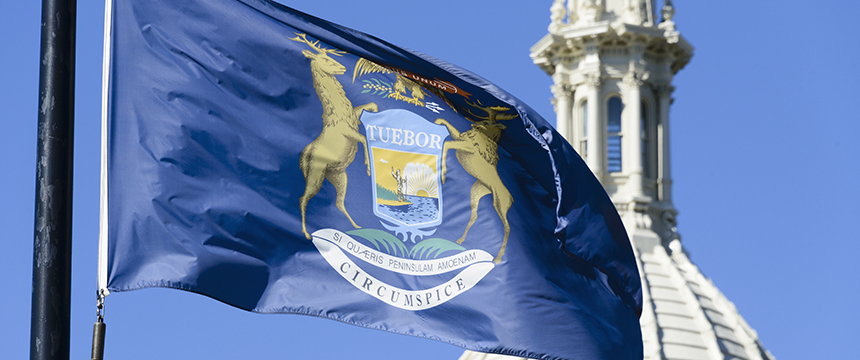Significant Changes Coming to Michigan Paid Sick Leave and Minimum Wage

On July 31, 2024, the Michigan Supreme Court issued a decision that significantly changes the state’s paid sick leave and minimum wage requirements. In Mothering Justice v. Attorney General, the Court determined that a procedure used by the Michigan legislature with respect to the current versions of Michigan’s paid sick leave and minimum wage laws is unconstitutional, thereby reverting the laws back to the original ballot initiative versions, which differ significantly from current law.
In 2018, the Michigan legislature adopted two ballot initiatives as law, and then extensively amended them in the same legislative session, ultimately implementing laws that are very different from the original initiative. One ballot initiative, the Improved Workforce Opportunity Wage Act (IWOWA) proposed changes to Michigan’s minimum wage requirements, increasing the minimum wage generally and eliminating a longstanding exception for tipped employees, among other changes.
The second ballot initiative implemented paid sick leave for Michigan workers, which was not mandated by law at the time. While it is settled that the legislature may adopt ballot initiatives as law and remove them from consideration by the voters as well as has the power to amend current law, the issue before the Court was whether the legislature can adopt a ballot initiative and also amend the same initiative in the same legislative session through a so-call “adopt and amend” process. The Supreme Court held that such a process is unconstitutional because it undermines the ballot initiative procedure outlined in the Michigan Constitution.
While the details of legislative procedure may not seem of practical importance to the day-to-day operations of Michigan employers, the decision has a significant impact on requirements for paid sick leave and minimum wage.
As a result of the decision, on February 21, 2025, the terms of the 2018 sick leave and minimum wage ballot initiatives are reinstated as law. The key changes are as follows:
More employers must provide paid sick leave. Under the prior law, in effect since 2019, employers with less than 50 employees are exempt from providing paid sick leave. Beginning in February 2025, all Michigan employers must provide it.
More employees are eligible for paid sick leave. While the prior law covered only full-time and non-exempt employees, now all employees are eligible for paid sick leave.
More sick leave must be provided. Reversion to the original ballot initiative means that eligible employees can accrue up to 72 hours of sick leave per year, instead of the prior 40 hours.
Minimum wage will increase. The Court determined that the increase in minimum wage contemplated by the ballot initiative must be adjusted for inflation. As a result, the State Treasurer will issue a chart with the new minimum wage requirements in the coming weeks. Minimum wage will increase to these pre-determined amounts through 2028 and will increase with inflation thereafter. It is estimated that the minimum wage effective in February 2025 will be between $12.36 and $12.50.
Tipped employees will transition to standard minimum wage. Previously under the amended version of the IWOWA, tipped employees may earn 38% of the minimum wage, presuming that earned tips must supplement to reach full minimum wage. Beginning in February 2025, this exception will be phased out. The percentage of minimum wage permissible for tipped employees will increase each year, finally aligning with 100% of minimum wage in 2029.
Efforts are underway, including by the Michigan Chamber of Commerce, to encourage the legislature to soften the blow of these changes for employers. However, the chance of significant rollback of the new employee benefits is doubtful given the current make-up of the legislature and the Governor’s office. While the above covers the main changes coming for Michigan employers, it is wise for employers to review the new requirements in detail to ensure they are prepared to be complaint with all requirements by February 21, 2025.
